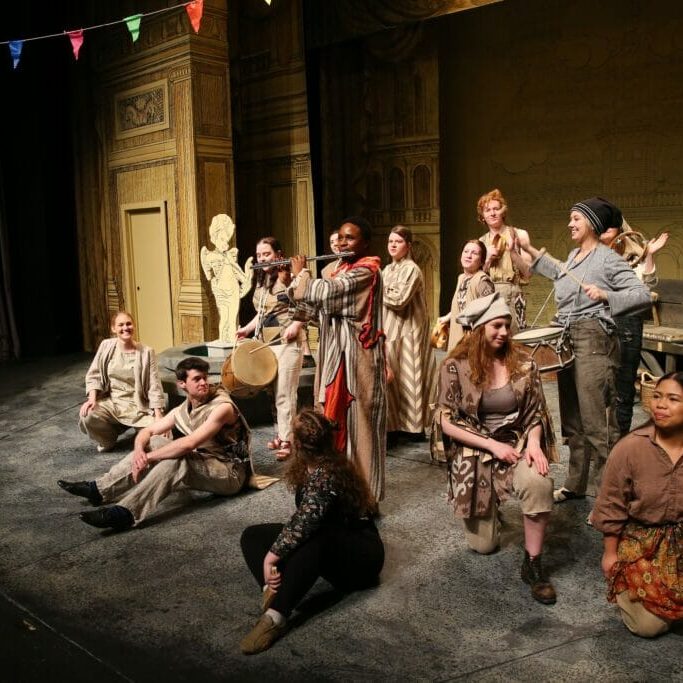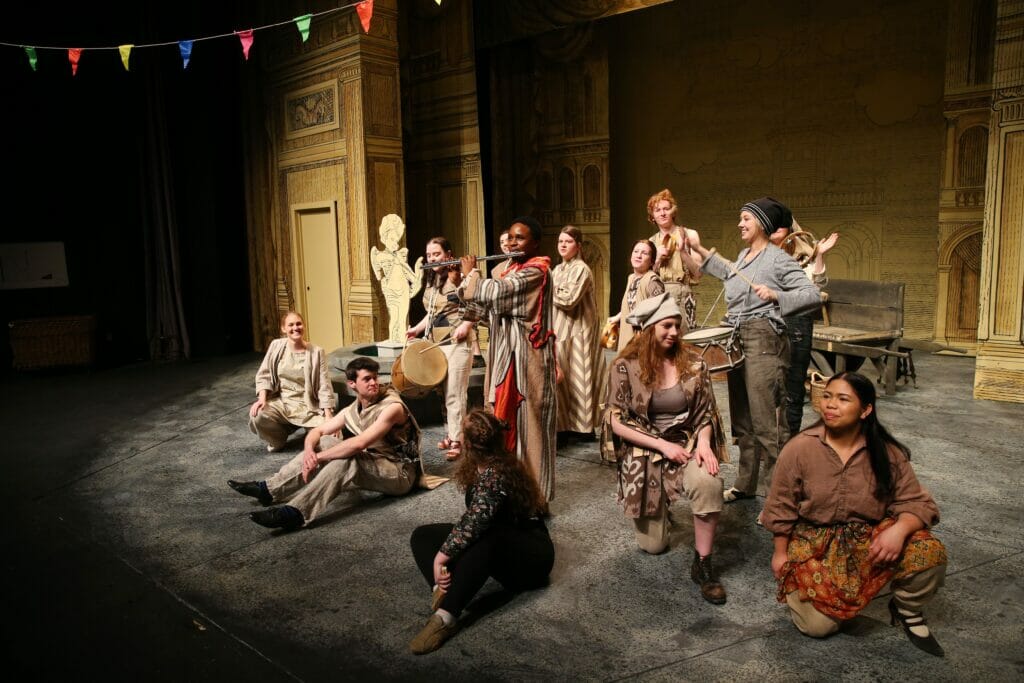
A new normal in theatre at Dalhousie
How the pandemic has affected the university’s performing arts
COVID-19 has had a massive impact on the theatre community, and the Dalhousie Theatre Society (DTS) is no exception.
A switch to digital
The DTS is adapting their plan for the 2020-2021 academic year to ensure safety and compliance with COVID-19 regulations. Sarah Nearing, the outgoing DTS president, says Dalhousie University’s plan for distance learning will not be able to make up for the in-person experiences the theatre program and society will lose this year.
“We have to adapt, but there’s no question that your education is impacted by this,” Nearing says.
Nearing says the entire Fountain School of Performing Arts (FSPA) at Dal has been affected by the pandemic. From vocalists to technical theatre to costume design, each department has taken a hit. FSPA relies on the power of live performance, personal connection and hands-on experience.
According to Nearing, the incoming DTS president has many great ideas about creating digital theatre in lieu of in-person performances. But it just won’t be the same.
“The whole purpose of theatre is to be in the same room and share a story with your fellow actors and with the audience,” says Nearing. “The audience makes or breaks a show.”
Many theatre actors like Nearing thrive on the back-and-forth participation between audience and cast. It’s why Nearing pursues acting.
“That’s why I do it, that sense of connection with other people that you don’t get when you watch a movie or a TV show or even a recorded version of a play,” says Nearing.

The importance of space
The upcoming fall semester will require many adaptations to the Dal theatre program. Emma Brown, a fourth-year FSPA student, said some of the course requirements for acting students are shifting. For example, a mandatory acting class normally taken in third year is changing to a puppetry course. Brown says she experienced a lot of growth during her time in the third-year acting class, and the idea this year’s group of students will not experience it is a sad one.
Brown calls attention to another huge issue facing the theatre program this year: finding the adequate space to rehearse.
“The biggest thing is having space where you can comfortably create and explore,” Brown says.
Brown explains how the ability to rehearse in a comfortable, free environment is dependent on a student’s particular living situation. Factors such as whether or not the student is able to make noise in their space and if there is enough room can make or break a student’s ability to rehearse and perform well. Brown says the theatre department is in the process of finding rehearsal spaces in Halifax. But that won’t help the students studying from outside of Nova Scotia this year.
A silver lining
Despite the many challenges facing the theatre department this school year, there have been positive sides to the situation. In Brown’s opinion, theatre has historically been an ableist profession, and the emergence of digital theatre opens up opportunities for a wider range of people to become involved in theatre.
“I’m really excited to see how this age of digital theatre continues to grow and what Dal does with it,” Brown says.
While there have been bright sides to the idea of digital theatre, theatre is fundamentally meant to be a live performance. COVID-19 has shaken the foundations of theatre and forced a reworking of the principles and necessities of the profession. But as Brown points out, “constraints can make you more creative.”
Although the pandemic has seemingly made theatre acting impossible, Nearing says actors are resilient. They face a difficult industry every day, yet continue to pursue their love of theatre regardless.






